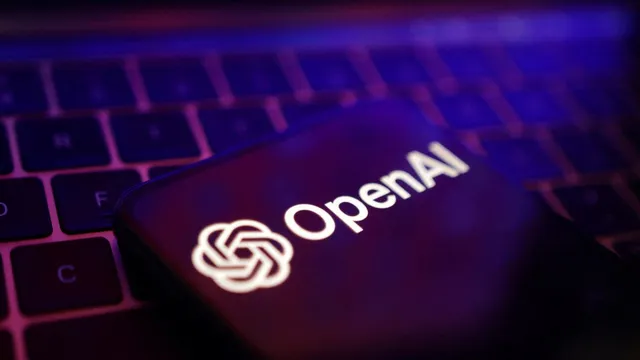- By Alex David
- Mon, 19 May 2025 12:31 PM (IST)
- Source:JND
OpenAI has introduced Codex, its advanced AI-assisted coding agent, which is now in research preview available to ChatGPT Pro, Team, and Enterprise subscribers for free—at least for the time being. The tool is aimed at aiding constructors with practical programming activities and can be found in the sidebar of ChatGPT. According to OpenAI, there will be generous initial usage limits, followed by rate-limited access with usage-based pricing.
Although excluded from the first wave, Plus and Edu subscribers are expected to gain access shortly. This release comes alongside discussions of AI’s impending displacement of much software engineering roles—exacerbated after Microsoft’s announcement that AI now accounts for 30% of their coding, followed by the layoff of 6,000 employees, many of whom were developers.
What Is Codex?
Codex is powered by codex-1, a tuned OpenAI o3 reasoning model, customised to an extent on real-world software engineering workflows. It creates code using default conventions for most programmers, including automated testing, until obtaining successful results. OpenAI claims codex-1 outperforms o3 on SWE-bench, their internal software engineering benchmark.
How Codex Works
Within the captivated environment of a user’s codebase and testing setup interface, Codex works on the following:
- Reading and editing files.
- Executing linters, type checkers, and test harnesses.
- Completing tasks that take from 1 to 30 minutes depending on complexity.
Users can improve Codex’s efficiency through the AGENTS.md file which acts like a README where project commands and coding methodologies are described. Moreover, Codex meticulously documents every step taken to reach the outcome alongside test results which aids in easy auditing and validating of results.
Using Codex: Features and Use Cases
Users can freely switch between the following prompt modes:
- Code: Where commands to write or change code are catered.
- Ask: This option provides recommendations or addresses technical inquiries.
Common uses include:
- Debugging and writing tests
- Refactoring legacy code
- Enhancing test coverage
- Understanding unfamiliar repositories
- Drafting new features and components
OpenAI suggests assigning well-scoped tasks to multiple agents and experimenting with prompt variations to maximize results.
Codex vs. Codex CLI
This year also saw the launch of Codex CLI, an open-source terminal-based agent using the o4-mini model by default, which can:
- Run locally on macOS and Linux
- Modify and execute code directly via command-line
- Be customized with different OpenAI models via the API
As of the latest update, Codex CLI includes:
- A codex-mini-latest model which is now more responsive
- ChatGPT credentials for quicker login
- Open API credits of $5 for Plus and $50 for Pro users (valid for 30 days)
Security and Best Practices
With the mentioned features in mind, human oversight is still vital, as an example, with OpenAI using Codex. Heavily automated workflows need to be manually double-checked, tested, and verified before execution, especially in production-like environments.
“It still remains essential for users to manually review and validate all agent-generated code before integration and execution,” OpenAI wrote.

